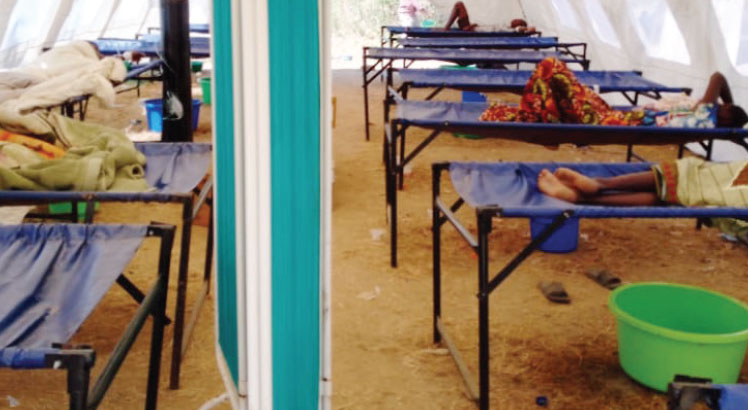Local councils move aggressively on cholera
As cholera cases continue to rise, most hit district councils have moved aggressively to contain the outbreak which has already claimed 86 lives.
Karonga, Rumphi, Nkhata Bay and Chikwawa district councils have issued bans on cooked foods and eating at mass gatherings like funerals while other councils have intensified sensitisation meetings and ensuring that people have access to clean and potable water.

Nkhata Bay district commissioner Peter Jimusole said they have banned public gatherings that attract mass feasting, accommodation and lodging.
“Other efforts being put to contain the situation include proper use of pit latrines, drinking safe and treated clean water and observing good food hygiene practice-eating while hot,” he said.
By Wednesday, Nkhata Bay had 621 cases with 17 deaths, Rumphi had 219 and five deaths while Karonga had 101 cases and four deaths.
Rumphi District Hospital spokesperson Bwanaloli Mwamlima said by public gatherings,by nature cannot guarantee hygiene and sanitation.
“We have also set up treatment centres in all affected areas so that patients do not travel long distances for treatment,” he said.
In Chikwawa, where 157 cases and four deaths have been recorded, district commissioner Ali Phiri said they have taken the action in areas such as Dyeratu, Bereu, Domasi, Chikwawa Boma and Mthumba.
Mzuzu City Council spokesperson McDonald Gondwe said they have decided to intensify sensitisation meetings, rather than instituting bans on gatherings.
“Through recent consultations, our decision is to strengthen awareness, promote sanitation and hygiene practices,” he said.
For Blantyre City Council, director of health Emmanuel Kanjunjunju also said community engagement is the most effective approach.
“So banning people from eating during gatherings may not be an effective way of dealing with the outbreak.”
Kamuzu University of Health Sciences epidemiology and public health professor Adamson Muula doubted whether banning eating at large gatherings, much as was expected, is unlikely to have a great impact.
Meanwhile, Minister of Water and Sanitation Abida Mia has said they are doing their best to ensure that people have access to clean water.
“When we note that there’s a problem with water, we immediately start providing piped water. Whenever we have cholera in an area where waterboards can access, we move in quickly. If it is in rural areas we are talking to donor partners to help us,” she said.
As of yesterday, Malawi has recorded 2 643 cases and 86 deaths. About 2 479 have recovered, while 78 remain in treatment centres, according to the Ministry of Health.





